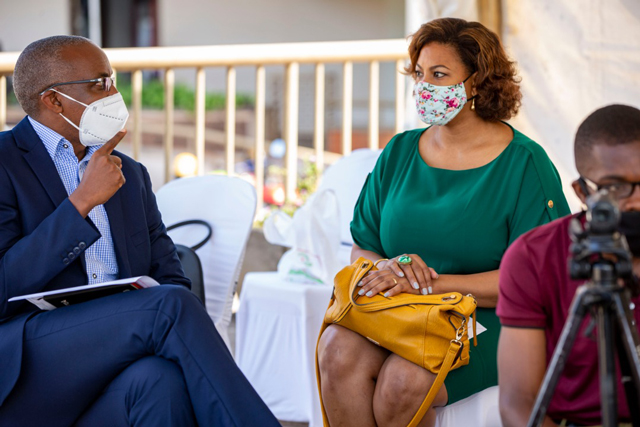
Kampala, Uganda | JULIUS BUSINGE | A United Kingdom funded online child abuse campaign that aims to remove sexual abuse content targeting children is taking root in Uganda, according to International Watch Foundation (IWF), which is behind it.
In an interview with The Independent, the International Development Officer for IWF, Zoe Colpaert, said the campaign has positively been received by Ugandans who continue to report cases.
The campaign was launched in Uganda on February 01, 2021, and two other firms – MTN and Facebook are supporting it.
Dubbed Help Children Be Children, the campaign is calling on the public to report any child sexual abuse content they come across online to a designated reporting portal at www.stopit.ug.
Despite some challenges including Facebook shutdown, which is one of the campaign’s main communications channels, the portal had by March 18, recorded slightly over 22, 000 views.
IWF is hopeful more reports would be submitted to the portal going forward.
In addition, almost 500, 000 people had been reached through social media in connection to the campaign.
“This is a great success as it means Ugandans have been sensitised about the importance of reporting child online sexual abuse thanks to the hard work of our partners based in the country,” Colpaert said.
Once reported through the portal, images and videos get assessed by trained IWF analysts in the UK, and once found to contain child sexual abuse, they are blocked or removed from the internet.
The government of Uganda supports the campaign through the National Information Technology Authority Uganda since the reporting portal launch in 2015.
The National Computer Emergency Response Team of Uganda (CERT.UG), Internet Society Uganda Chapter, and the Ministry of Internal Affairs are the other partnering entities in this campaign.
But what motivates the public to spend resources on reporting these cases?
IWF executives, say, the reporting process – which can be totally anonymous – can be as quick as a few seconds and only requires the reporter to copy and paste the URL where the illegal image or video has been spotted.
“Reporting empowers everyone to act against this terrible crime, which could save a child’s life and which makes the internet safer for all of us,” executives said.
Colpaert said, the campaign is a pilot project which has been sponsored and is due to finish at the end of March.
Nevertheless, because of its success, key IWF members in Africa have expressed interest to support the campaign for a longer period.
“We hope that the campaign will run for many more months and get to a point where everyone in Uganda will know that if they see an image or a video of a child being abused online, they can report it safely and anonymously on our portal,” Colpaert added.
A very similar campaign is running in Zambia following similar timeframes.
IWF’s hope is to extend the campaign to many more countries in Africa and around the world, including the 45 countries in which the IWF reporting portal is present.
In 2020, IWF analysts processed 299,600 reports which included tip-offs from members of the public. This is up from 260,400 reports in 2019 – representing an increase of 15%.
Of these reports, 153,350 were confirmed as containing images and/or videos of children being sexually abused. This compares to 132,700 in 2019 – an increase of 16%.
 The Independent Uganda: You get the Truth we Pay the Price
The Independent Uganda: You get the Truth we Pay the Price





